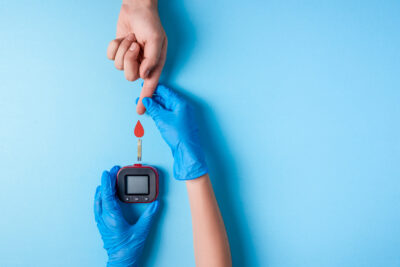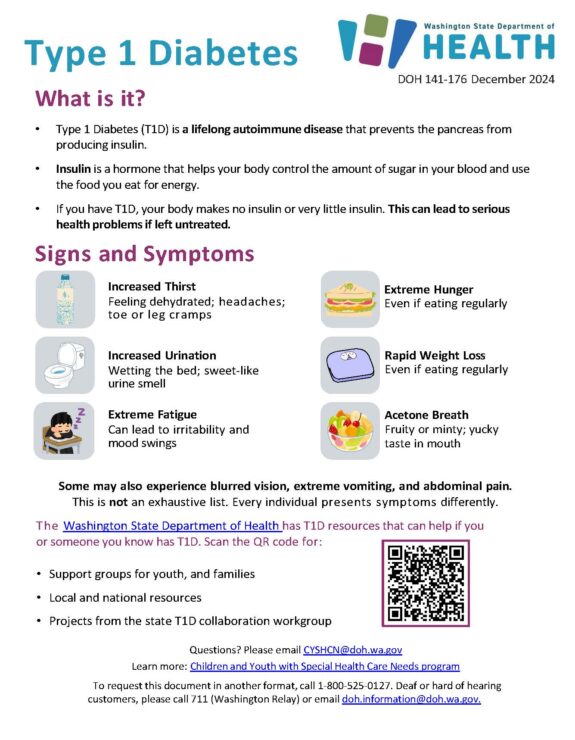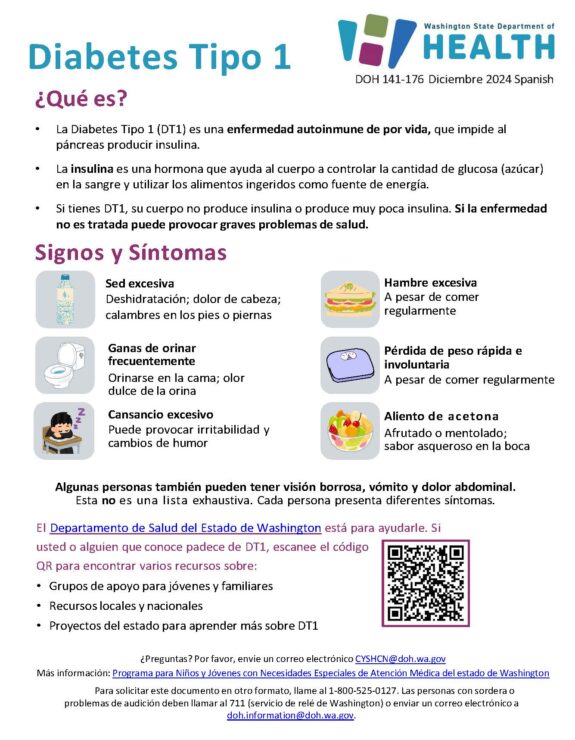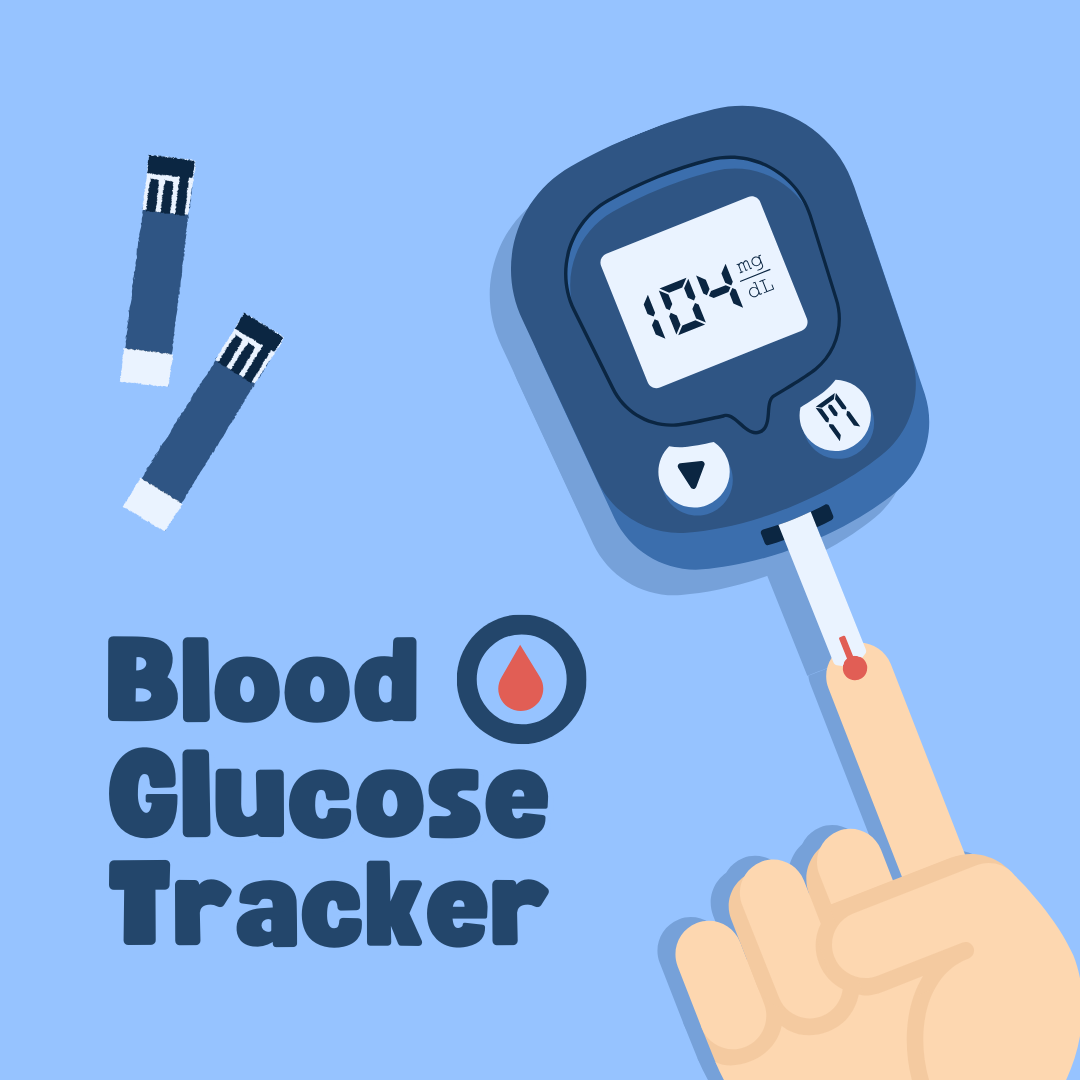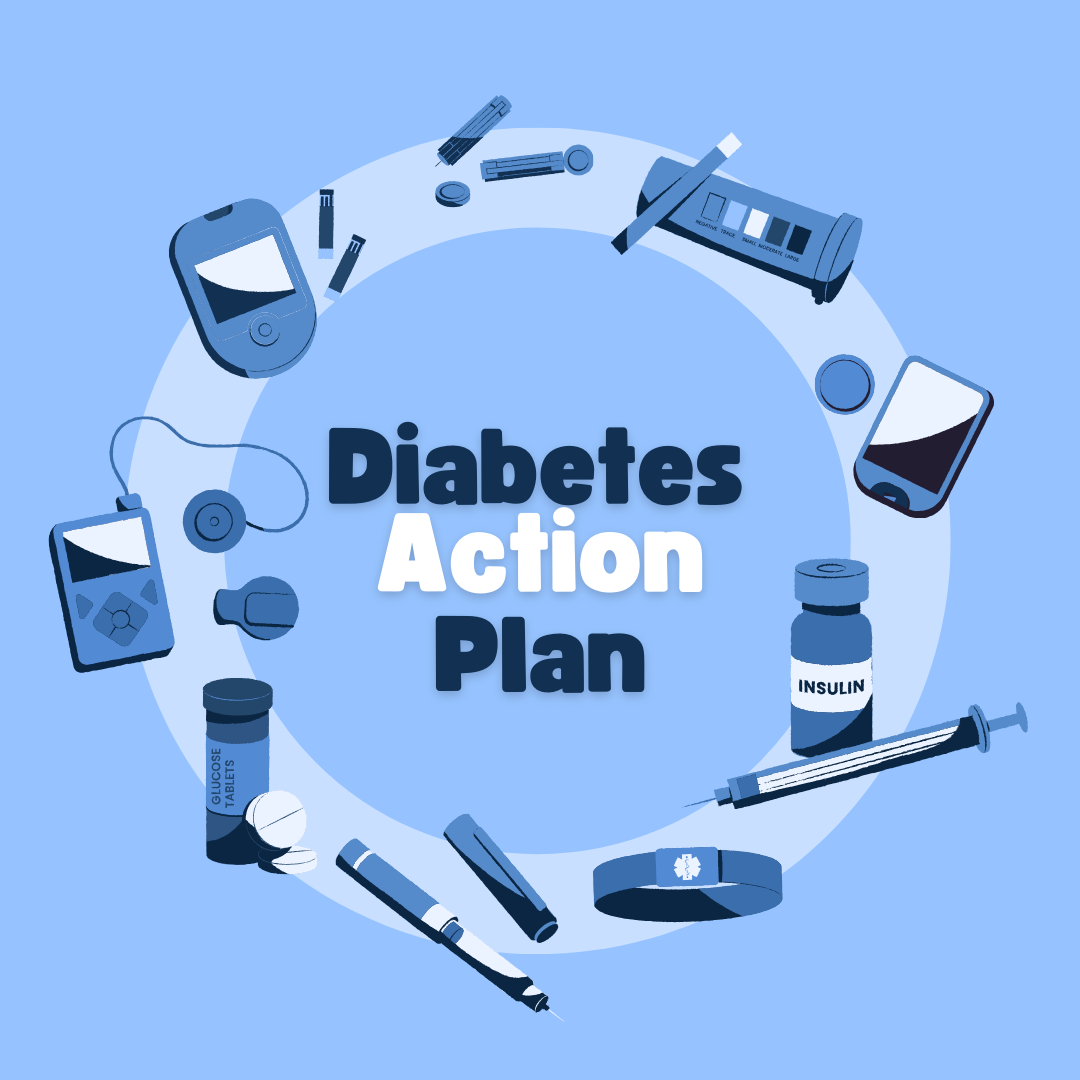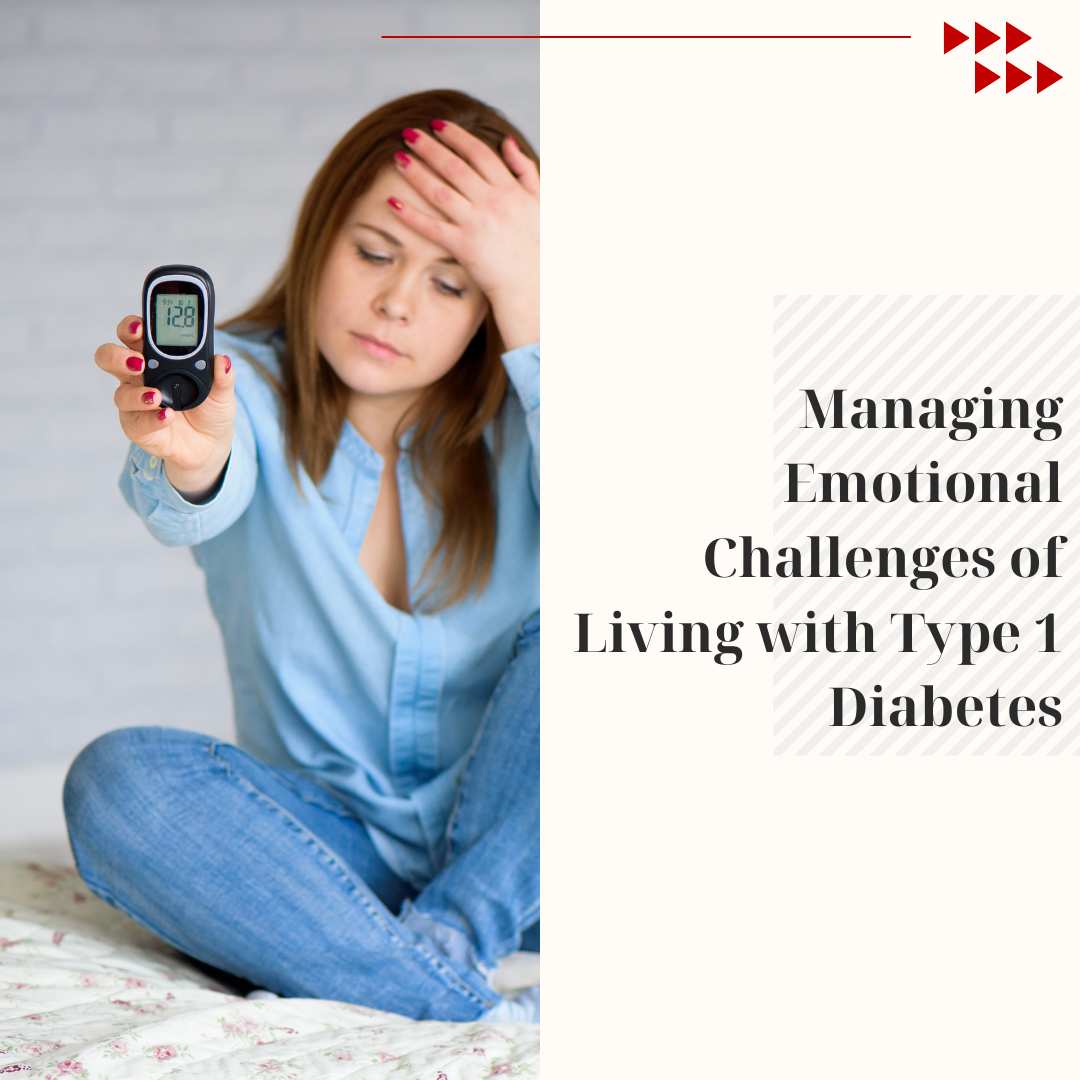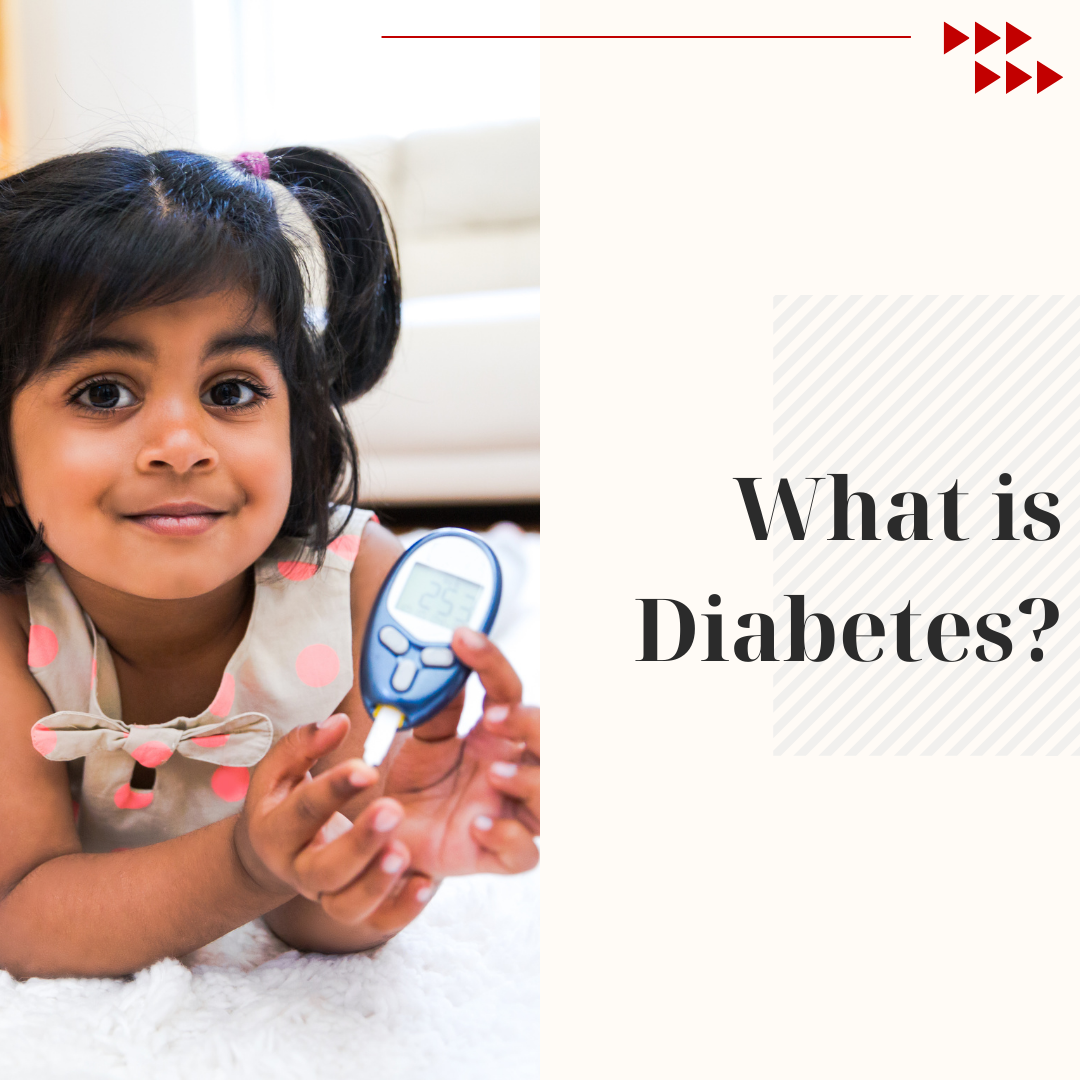Summary
The Center for Disease Control (CDC) published a study examining the number of young people under 20 with Type 1 Diabetes from 2002 to 2017. The researchers’ review of the data showed an increase in the diagnoses of Type 1 Diabetes. The researchers concluded that if the rate of new diagnoses continues to increase by the year 2060, the Type 1 Diabetes cases would increase by 65%. The study predicted higher increases in Black, Hispanic, or Latino, Asian, Pacific Islander, and American Indian or Alaska Native young people. CDC responded to these results as a call to action for health equity. Washington state responded to the CDC’s call to action by developing a Type 1 Diabetes work group.
This article includes:
- A History of the creation of the Type 1 Diabetes Work Group
- Work Group Progress
- Future Direction
- Current Local Resources
History of the Type 1 Diabetes Work Group
In 2022, in response to a documented increase in the number of new diagnoses of Type 1 Diabetes (T1D) in children and youth in the state, and an increase in hospital admissions and near fatalities related to T1D complications, the Type 1 Diabetes Work Group was founded in Washington State. The goal of the Type1 Diabetes Work Group was to provide more support to the families of children with Type 1 Diabetes. The group includes parents, advocates, and medical professionals.
The work group gathered information from professionals who treat patients with T1D to determine their priority needs. Twenty-two (22) healthcare professionals from around the state responded to the Work Group’s survey and identified these needs:
- More clinical support for the psychosocial complexity among youth with Type 1 Diabetes.
- Increase in mental health care providers familiar with diabetes.
- Community-based support groups.
- Financial resources and improved insurance coverage with no prior authorization.
- Better transition to adult care for young adults with diabetes.
Families across the state with Type 1 Diabetes were asked to attend listening sessions and identify their needs. Thirty families participated in the Type 1 Diabetes listening sessions and identified their needs:
- More education on Type 1 Diabetes for school staff, including school nurses, office staff, and faculty.
- Childcare centers and preschools whose staff are trained to support children with Type 1 Diabetes.
- Understanding how to navigate insurance.
- Transportation and increased access to local endocrine clinics.
- Trauma-informed and compassionate care.
The Type 1 Diabetes work group used information from both groups to develop their goals.
Work Group Progress
The work group has actively made Type 1 Diabetes support accessible to families. They created Diagnosis: Diabetes – Family to Family Health Information Center, a dedicated resource for sharing local and national resources on diabetes.
They developed a Statewide T1D Coordinator role in partnership with PAVE and P2P, funded by the Washington Department of Health. The need for a Type 1 Diabetes information hub where families could easily go to get information on one page resulted in the creation of the Washington Family to Family Type 1 Diabetes Community Board. A T1D Family Support Program was established, providing parent-to-parent support services. An online parent support group is a planned expansion for this program. A T1D Teen Connect Support group was started and continues to serve teens. The group is led by a young adult volunteer with Type 1 Diabetes who can relate to the teen’s experiences.
The Work Group worked with the Office of Superintendent of Public Instruction (OSPI), Washington’s state education agency, to develop Guidelines for Care of Students with Diabetes to align with the American Diabetes Association’s Helping the Student with Diabetes Succeed: A Guide for School Personnel. OSPI is the primary agency in charge of overseeing K-12 education in the state of Washington. OSPI allocates education funding for resources to support the education of students. to support the education of students.
The Washington State Department of Health (DOH) created an eating disorder handout for healthcare personnel, including diabulimia, an eating disorder associated with Type 1 Diabetes. A person with Type 1 Diabetes reduces or stops taking their insulin as a means of losing weight. This can have serious health consequences as everyone needs insulin to live.
The group has also started improving the managed care organization referral process for families with children with Type 1 Diabetes. They created a poster for health care offices and social media to identify T1D new-onset symptoms.
Future Goals:
- The work group will continue to work on growing the T1D Family Support program.
- Building Washington State data on diabetes.
- The Work Group will partner more with Department of Children, Youth and Families (DCYF) regarding Child Protective Services (CPS) referrals for children and youth with Type 1 Diabetes for children and youth with Type 1 Diabetes.
Local Resources
Washington Family to Family Type 1 Diabetes Community Board Padlet contains supports, resources, upcoming social events, workshops, and what is new in the news for diabetes.
Seattle Children’s Hospital offers a diabetes clinic, support groups, education, workshops, and everyday resource guides and checklists, such as a travel checklist.
Camp Leo is for children and young people with Type 1 Diabetes. Registration for the children’s and young people’s camp is open. Family weekend camp is in the fall. Registration for the family weekend camp is currently accepting applications.
Resources Included in the article above:
Diagnosis: Diabetes -Family to Family Health Information Center
Guidelines for Care of Students with Diabetes

